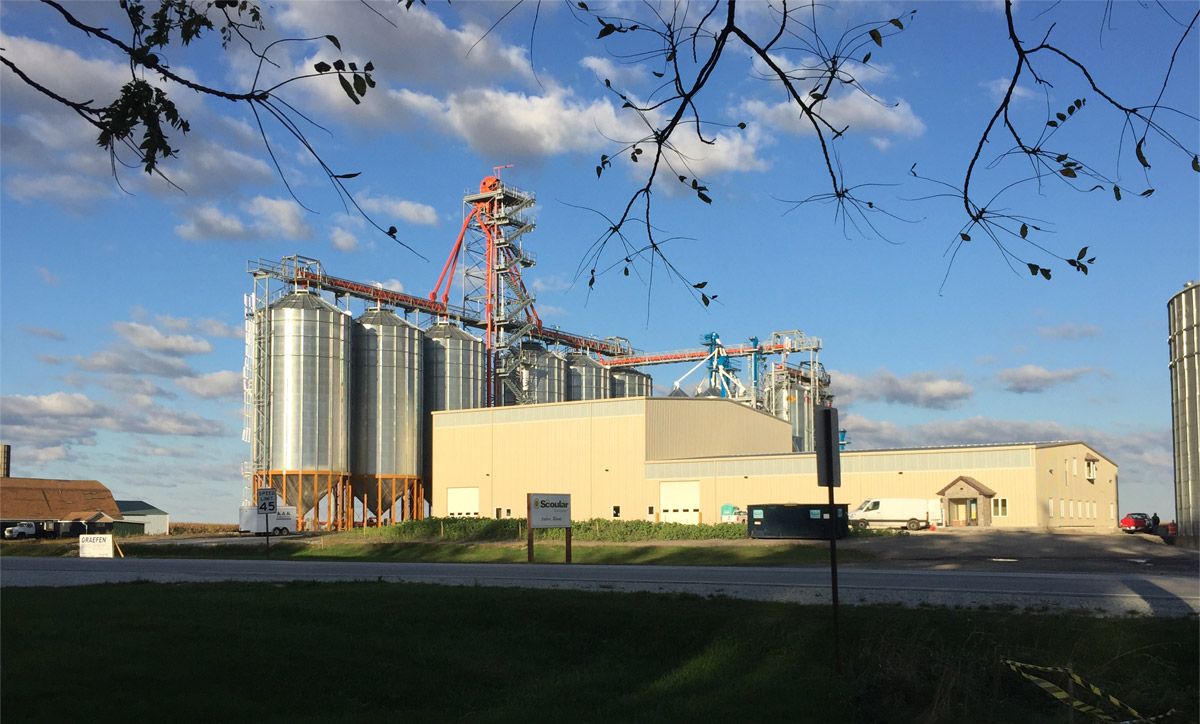To meet growing demand for high quality food-grade grain, The Scoular Company is opening a new state-of-the-art cleaning plant south of Chicago in Andres, Ill.
To maintain purity, the facility, which opened last December, will handle only non-GMO grain.
“We’ve been in the food-grade market for more than 20 years,” said Greg Lickteig, who oversees Scoular’s Specialty Grains group. “In the past, we’ve worked almost exclusively through third-party providers for cleaning services. While we’ll continue to work with these folks going forward, we made the decision to construct a plant because our program was expanding and we lacked sufficient supply to meet growing demand.”
Lickteig said that the company’s ability to secure a prime location for the plant was a key factor in the decision to build. “Our plant is located in the heart of the Midwest, surrounded by prime U.S. farmland that consistently produces high quality grain. Local farmers have been delivering grain to this location for over 100 years,” he said.
Lickteig continued: “What’s changed is transportation. Rather than shipping product by rail, container freight is the driving factor in the market. The facility is situated near the largest inland container yard in the United States, contributing to our ability to access the cheapest container rates to destinations throughout the world.”
The new dedicated non-GMO facility features cleaning by size, weight, shape and color; high-speed precision cleaning; on-site grain lab to test purity, protein, oil, fiber, sugar; and semi-automated bagging line, stacking any size bag, among other features. The facility is also supported by an identity preservation system to trace grain back to the farmer.
Initially, the facility will handle non-GMO food-grade soybeans to make tofu, soymilk, and miso. Asian buyers, particularly in Japan, have traditionally driven the market for non-GMO food-grade soybeans, but the U.S. domestic market is also growing, according to Lickteig.
The new facility could encourage more farmers to grow non-GMO soybeans. “We will do our best to increase non-GMO production,” Lickteig says. “The market is favorable for farmers to grow non-GMO. There are good seed varieties available.”
“We’re pretty excited about the plant coming on line and being able to supply consistent quality to our buyers and to our farmers,” Lickteig says.





